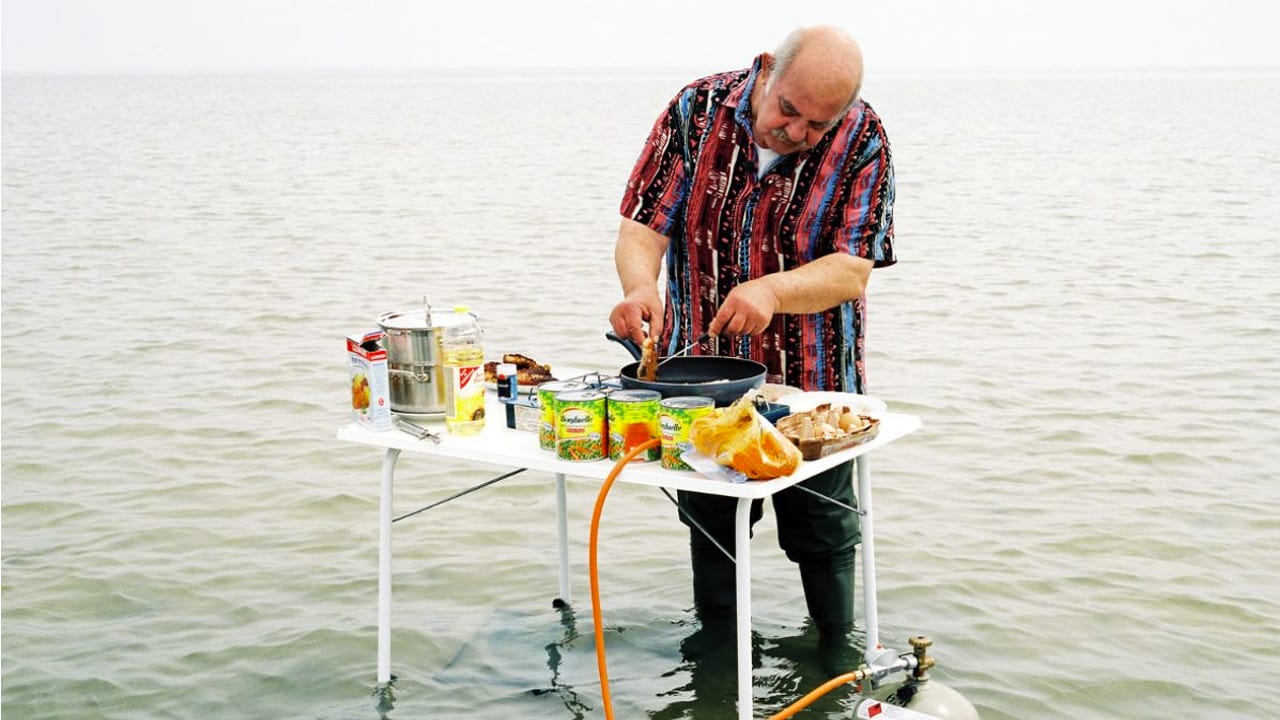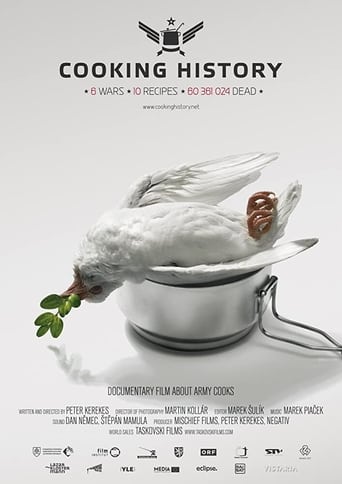



not as good as all the hype
The film makes a home in your brain and the only cure is to see it again.
View MoreA story that's too fascinating to pass by...
If you're interested in the topic at hand, you should just watch it and judge yourself because the reviews have gone very biased by people that didn't even watch it and just hate (or love) the creator. I liked it, it was well written, narrated, and directed and it was about a topic that interests me.
View MoreI have to admit that I started watching this documentary with low expectations, particularly because of its insufficient and irrelevant one-liner in IMDb. Actually, although this documentary tells about 'military cooking', it manages to put it into a historical. at the same time very human context.The documentary starts with details on cooks and cooking in the German and Russian armies during the Second World War. It visit Hungarian military cooks who happened to witness Soviet occupation in 1956, then continues with two French military cooks with different viewpoints on the Algerian occupation, then it visits Czechoslovakia in 1968, again, during the Soviet Occupation. The next stop is Yugoslavia, but then, we have an interesting guest, the cook of Josip Bros Tito. Afterwards, we witness the disintegration of the same country through two different eyes / cooks. There is an epilogue as well, of which I wouldn't give any details.To be honest, such a topic can be handled in a wide scope ranging from extremely boring to extremely loose. I think Peter Kerekes was concerned enough about that, so that he always yearns for a discourse. The other that he is good at is, although the historical venues I mentioned above are mostly eclectic, he tried to catch a common pattern by asking 'thick' questions about the similarities in military orders and recipes, about war, about occupation and collaborators, about killing. Nevertheless, humour is always there.One last note: in the movie you'll watch animals getting killed in various ways, for their meat. These are deeply disturbing scenes, but I think, as a vegetarian, any meat eater should be disturbed.
View More